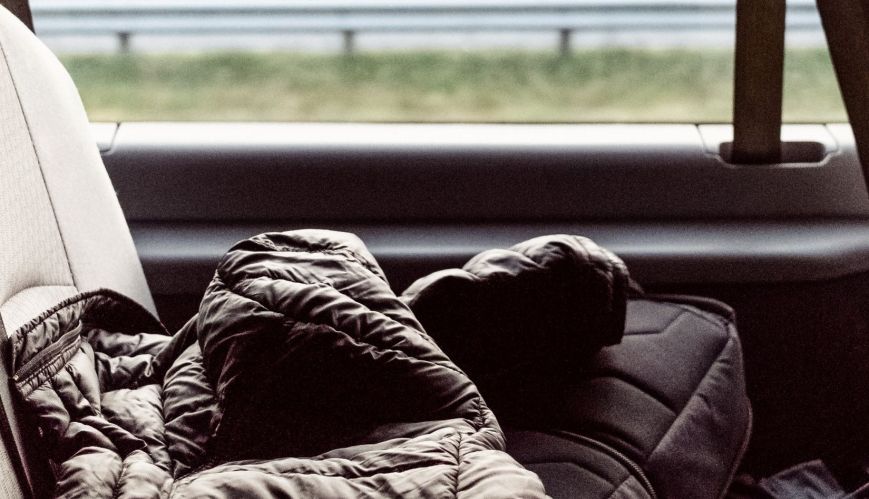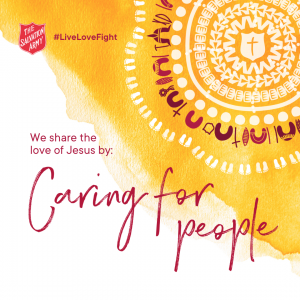Safety from 'Street to Home' in Tasmania

Safety from 'Street to Home' in Tasmania
4 August 2021
Sleeping in their cars is often the only option for people experiencing homelessness. Photo: Mitchell Hartley on Unsplash.
For many people, ‘home’ is a word full of meaning and hope. Sadly, though, it can seem an almost impossible dream or a distant memory for those with no place to call home. This National Homelessness Week, and throughout the year, The Salvation Army ‘Street to Home’ program in Tasmania reaches out to those facing primary homeless (sleeping rough) to address some of the barriers to finding ‘home’.
For much of his working life, Fred* was the manager of a successful sheep property until serious health issues began to limit his ability to work long and physically demanding hours. Other pressures also began to take a toll on his physical and mental health. Then, tragically, he lost his wife of 40 years.
When Fred finally had to leave his job, he also lost the manager’s accommodation attached to the role, and in a frighteningly short time, he found himself deeply depressed, isolated and then homeless.
When The Salvation Army Street to Home (S2H) team met Fred, he had been living in or near his utility and was often moved on by authorities from the parks and reserves where he slept.
The purpose of S2H is to help end the cycle of chronic homelessness experienced by most vulnerable rough sleepers. It often involves a team leader and case manager going out early morning to contact those sleeping rough in the Greater Hobart area.
Anne Carr, S2H case manager, says: “During our early-morning outreach visits around the Hobart area, we noticed Fred sleeping in his car. He’d been sleeping rough for several months and was trying to ‘make do’ in the front of an ageing and unreliable utility, which was his only form of shelter.
“Fred was struggling with health issues, including mobility, but was slow to take up the offer of support. He was angry and hurt by the world. His anger, though, was just the exterior of a broken and once proud man. He said that he was actually more embarrassed about his situation than angry but felt so much better talking to someone about it all.
“Through building a relationship and trust, he finally accepted help including referral for medical help, referral to a counsellor and support with basic accommodation.”
Supporting the vulnerable
The Salvation Army is the leading provider of homelessness services in Australia, offering a vast network of support that enables people experiencing homelessness to access accommodation, case management services, advocacy, financial assistance, counselling and meals, and connection and referral to other specialist services.
Those, like Fred, sleeping rough are only the tip of the homelessness iceberg in Australia, with statistics from the 2016 Census showing that only seven per cent of those homeless or at risk of homelessness are ‘rough’ sleepers. This means that for every homeless person seen on the streets, there are 13 more people who make up the hidden face of homelessness.

The S2H program supports those living on the street and/or in cars, who may be struggling with past trauma, mental health issues, illness, poverty, long-term unemployment, those exiting prison and young people exiting state care. Many supported by S2H would never have the confidence or resources to walk into an office, call a service or otherwise access help.
Anne says: “The support can take many different forms, from actual physical support to advocacy and service coordination. Perhaps the most important support we can provide when people are in crisis is spiritual and emotional care. Many of these people have experiences of significant trauma in their past, and a life of uncertainty and instability with homelessness leaves them vulnerable to mental ill-health and drug and alcohol issues.”
The S2H team collaborates with Hobart City Council and Glenorchy City Council teams, responding to reports and notifications of people ‘sleeping rough’ and covering known areas where people are known to sleep, such as inner-city parks, car parks, laneways, city streets, bushland and other public places.
Network and need for support
Anne says S2H is primarily funded through Salvation Army mission support and supplemented by fundraising through the ‘Sleeping out with the Salvos’ appeal.
Hobart City Council engages in pay-for-service information sessions, with S2H team members giving presentations to their parks, gardens and parking staff.
The service is also well-provided with food, swags, volunteers and other donations from businesses, clubs and individuals – help that is desperately needed by those facing primary homelessness, especially in an area where winter temperatures regularly dip below freezing.
Anne says: “In recent times with the opening of the Hobart City Mission/The Salvation Army Safe Space [a place for rough sleepers at night] the S2H team has been instrumental in not only bringing people indoors to this facility but also in linking them with services and providing day-to day-support.”
However, she says, with around 300 people sleeping rough in her area of operation, the resources are always stretched.
Anne also sees a need to expand the program in other areas because it can be a matter of life and death as well as the quality of life.
“S2H is often the difference between people living and dying,” she says. “For example, a council worker called me saying that he was with one of the people I regularly work with. He thought the man might have had a seizure, and I told him to call an ambulance, knowing the history of this man and his vulnerable health situation.
“Sadly, we can’t always find them a home. Sometimes it feels like their situations are overwhelming, but we can offer at least some shelter and help as they accept it. I always give them my time – always! To be able to provide hope when all around them have seemingly run away is such a powerful thing, and I feel blessed to be serving in this role.”
* Name and some details changed for privacy.